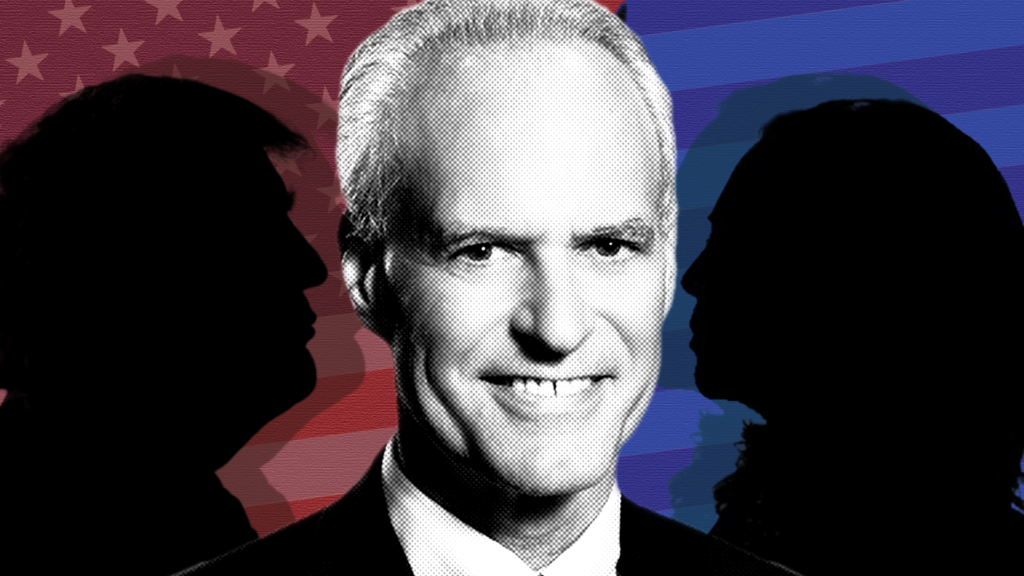Question for the candidates: What will you do if Iran gets the bomb?
By Henry Sokolski | September 19, 2024

Editor’s note: Henry Sokolski, executive director of the Nonproliferation Policy Education Center, proposes three nuclear questions about Iran, China, and reactors in war zones that journalists and citizens could profitably ask the 2024 presidential candidates. (This is part of an “experts comment” series of questions for the candidates.)
Query US presidential candidates Kamala Harris or Donald Trump on the nuclear issues dominating the news and you are unlikely to get much more than party-prepared talking points. Gleaning more from the candidates requires cross-examining them on what has yet to capture the attention of the media.
Iran
Background: The current debate—how much should we please or squeeze Iran to keep it from acquiring nuclear bombs—ignores that such weapons are only a screwdriver’s turn away. What then? Should Washington eliminate Iran’s arsenal militarily or merely fortify Iran’s neighbors’ defenses? Push for regime change or negotiate to eliminate or limit Tehran’s weapons? Alternatively, should it deny as long as it can that Iran has weapons (that is, what it did with Israel and North Korea)?
Does it still make sense for the United States to help Saudi Arabia enrich uranium on their soil, a step that could bring the Kingdom to the brink of bomb-making? Both Biden and Trump officials have toyed with this. Separately, what, if anything, should Washington do to reduce the demand for nuclear weapons among Iran’s neighbors, including Egypt, the United Arab Emirates, and Turkey? Should Washington bother?
Meanwhile, the nuclear aspirations of Japan, South Korea, and Poland are also sure to spike if Iran gets the bomb. Should Washington discourage them from going nuclear? If so, how? In the 1950s, the United States decided to help the United Kingdom with its nuclear weapons efforts. Should Washington do the same with other security allies? Some have suggested it should deploy US nuclear weapons on these countries’ soil. What, if anything, should Washington do if Russia and China do the same with their allies?
Question for the candidates:
- What is Washington prepared to do after Tehran goes nuclear?
China
Almost 10 years ago, Congress complained about Beijing illicitly diverting US Westinghouse nuclear power technology to upgrade Chinese nuclear submarines. Recently, the Pentagon has warned that China is likely using plutonium and tritium from its civilian fast reactor, spent fuel reprocessing, and heavy water reactor programs to expand its nuclear arsenal. None of China’s civilian nuclear plants are under international nuclear inspections. The United States is about to export four more Westinghouse reactors to China. Should it?
In 2008, the Bush administration suspended US nuclear cooperation with Russia after President Vladimir Putin invaded Georgia. Should Washington do the same with China until it can certify that China can’t divert US nuclear technology to military purposes?
Finally, Cameco, a Canadian firm, which owns 49 percent of Westinghouse, sealed one of the largest uranium contracts in history to a subsidiary of China National Nuclear Corporation (CNNC). CNNC makes China’s nuclear weapons. Should Washington care?
- Should the United States and its allies continue nuclear business as usual with Beijing?
Reactors in war zones
Both the Biden and Trump administrations have promoted nuclear reactor exports, including to war-torn regions of the Middle East, Eastern Europe, South and East Asia. Neither administration has said anything about the vulnerability of these or existing plants to military assaults.
US nuclear plants sited overseas are not the only plants at risk of such assaults. Last fall, the Pentagon forecast China could have its first nonnuclear intercontinental missile by 2030. China is watching Russia’s missile attacks against Ukraine nuclear plants closely. Should we worry that China might threaten to strike US reactors?
Should the United States test the resilience of new and existing reactors to missile attacks? If so, how? What kinds of hardening might mitigate the risks of missile attacks and radiological releases? Should the International Atomic Energy Agency and-or NATO help? In what ways? Who should pay for the defense of US nuclear plants—the US government or reactor vendors? Should nuclear plants be built in war-prone locations overseas?
The Biden and Trump administrations have either been in odd agreement on these issues or ignored them altogether. Journalists (and other citizens) should spotlight this, flush the candidates out, and hold their next president accountable for their answers.
- What should Washington do to protect nuclear plants from military assaults?
Has Russia’s war in Ukraine changed your view of the role of nuclear weapons? By Siegfried S. Hecker
What will you do to avoid a nuclear arms race with Russia and China? By Steven Pifer
What is your plan to prevent the next dangerous and expensive nuclear arms race? By Laura Grego
How many nuclear warheads does the United States need? By Tom Z. Collina
Should the president retain the sole authority to order the use of nuclear weapons? By Mackenzie Knight
Do you agree with other world leaders that the use of—or threat to use—nuclear weapons is “inadmissible”? By Daryl G. Kimball
How will you reassure allies worried about the credibility of the US security guarantees? By Sara Bjerg Moller
What will you do if Iran gets the bomb? By Henry Sokolski
How will you deter North Korea’s aggression without deteriorating the situation on the Korean Peninsula? By Eliana Johns
Will the United States sign and ratify the Treaty on the Prohibition of Nuclear Weapons? By Alicia Sanders-Zakre
Together, we make the world safer.
The Bulletin elevates expert voices above the noise. But as an independent nonprofit organization, our operations depend on the support of readers like you. Help us continue to deliver quality journalism that holds leaders accountable. Your support of our work at any level is important. In return, we promise our coverage will be understandable, influential, vigilant, solution-oriented, and fair-minded. Together we can make a difference.
Keywords: 2024 election, 2024 presidential election, China, Iran, Ukraine, United States, candidate questions 2024, nuclear reactors
Topics: Nuclear Weapons















